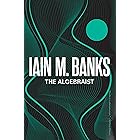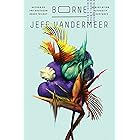Learn more
These promotions will be applied to this item:
Some promotions may be combined; others are not eligible to be combined with other offers. For details, please see the Terms & Conditions associated with these promotions.
Your Memberships & Subscriptions

Download the free Kindle app and start reading Kindle books instantly on your smartphone, tablet, or computer - no Kindle device required.
Read instantly on your browser with Kindle for Web.
Using your mobile phone camera - scan the code below and download the Kindle app.

Follow the author
OK
What Entropy Means to Me Kindle Edition
Doctor, watch out! As Dore stood by, he saw the Doctor backing slowly into the corner where he would meet his fate. Initially defending himself with a torch, the Doctor searched frantically for a new method of defense. The crimson mass is lunging forward using long, tentacle-like attachments: what is that thing? Slowly the subhuman blob comes in to focus, and Dore realizes...it's a colossal radish! This is a monster never before wrestled with; what are they going to do? After reading this vegetative tale, you won't look at your garden the same way again.
Customers who bought this item also bought
Editorial Reviews
About the Author
George A. Effinger was born in Cleveland, Ohio, in 1947. He attended Yale University, where an organic chemistry course disabused him of the notion of becoming a doctor. He had the opportunity to meet many of his science fiction idols thanks to his first wife, who was Damon Knight and Kate Wilhelm’s babysitter. With their encouragement, he began writing science fiction in 1970. He published at least twenty novels and six collections of short fiction, including When Gravity Fails and The Exile Kiss. He also wrote and published two crime novels, Felicia and Shadow Money. With his Budayeen novels, Effinger helped to found the cyberpunk genre. He was a Hugo and Nebula Award winner and is a favorite among fellow science fiction writers.
Product details
- ASIN : B00J3EU3D8
- Publisher : Open Road Media Sci-Fi & Fantasy (April 1, 2014)
- Publication date : April 1, 2014
- Language : English
- File size : 2.5 MB
- Text-to-Speech : Enabled
- Screen Reader : Supported
- Enhanced typesetting : Enabled
- X-Ray : Not Enabled
- Word Wise : Enabled
- Print length : 188 pages
- Best Sellers Rank: #1,249,345 in Kindle Store (See Top 100 in Kindle Store)
- #2,667 in Humorous Science Fiction (Books)
- #6,529 in First Contact Science Fiction eBooks
- #9,426 in Dystopian Science Fiction (Kindle Store)
- Customer Reviews:
About the author

Discover more of the author’s books, see similar authors, read book recommendations and more.
Customer reviews
Customer Reviews, including Product Star Ratings help customers to learn more about the product and decide whether it is the right product for them.
To calculate the overall star rating and percentage breakdown by star, we don’t use a simple average. Instead, our system considers things like how recent a review is and if the reviewer bought the item on Amazon. It also analyzed reviews to verify trustworthiness.
Learn more how customers reviews work on AmazonCustomers say
Customers find the book enjoyable, particularly appreciating its hilarious examination of entropy. However, the pacing receives negative feedback, with several customers describing it as baffling.
AI-generated from the text of customer reviews
Customers find the book enjoyable, describing it as a hilarious examination of entropy, with one customer noting it as a satiric science-fiction novel.
"Can I really be the first reviewer of this funny, sometimes infuriating, always enjoyable & satiric science-fiction novel, the first in George Alec..." Read more
"Enigmatic and baffling, a fun read. Is the narrator mad or merely unreliable? Or is it the world that's mad or unreliable?..." Read more
"...While overall engaging, the total lack of any worldbuilding is a serious deficiency...." Read more
"The writing style was good, even interesting, but the content led to nothing but bizarre, unanswered questions, none of which I find I actually care..." Read more
Customers find the pacing of the book baffling.
"Enigmatic and baffling, a fun read. Is the narrator mad or merely unreliable? Or is it the world that's mad or unreliable?..." Read more
"...At the same time, there is little if any rational basis for the current state of affairs...." Read more
"The writing style was good, even interesting, but the content led to nothing but bizarre, unanswered questions, none of which I find I actually care..." Read more
Top reviews from the United States
There was a problem filtering reviews. Please reload the page.
- Reviewed in the United States on December 1, 2024Kept starting and stopping this book. It seemed to be clever and interestingly told, but lacked any real hook. It just meandered its way along. Easy to put down.
- Reviewed in the United States on February 9, 2010Can I really be the first reviewer of this funny, sometimes infuriating, always enjoyable & satiric science-fiction novel, the first in George Alec Effinger's all too short career?
Don't mistake "satiric" for glib snarkiness, though. This is definitely a young man's novel, particularly a young man who came of age in the late 1960s/early 1970s, influenced by the times & the New Wave in science-fiction. It merrily plays with the tropes of the Quest, while exploring the nature of stories & storytelling -- and with the young author's erudition in full flower. But it's never annoying. You can feel Effinger's enthusiasm & delight as he spins his tale (within a tale).
We quickly meet the two protagonists: the brothers Dore & Seyt. Dore has been sent forth on a quest up the River, in search of his lost Father. Seyt remains at Home, chronicling his older brother's adventures by simply making them up, chapter by chapter, even as he deals with his many siblings -- particularly the smarmy, detestable Tere. And he keeps us informed of each new chapter's reception by his Family, and the resulting political dynamic, always in flux.
Dore is something of a Candide, a noble & trusting young man ... or is that simply the Dore that Seyt has created in his chronicle? The Romance of the Quest gets a thorough & often hilarious examination -- after all, we're reading chapters entitled "The Radishes of Doom" & "The Hall of the Mountain Thing," and meeting heroic sidekicks named Bucky. Yet even at its most ridiculous, we remain enthralled, wanting to know what happens next -- both to Dore & to Seyt.
Truthfully, it's a rich & wonderfully absurd coming of age novel -- not just for the characters, but for the author as well. Luckily it's been reprinted recently, so it's easily available once more. Science-fiction fan or not, if you're looking for something a little different, a little challenging, and a lot of fun, then you're in for a treat. Most highly recommended!
- Reviewed in the United States on February 16, 2016Enigmatic and baffling, a fun read. Is the narrator mad or merely unreliable? Or is it the world that's mad or unreliable? Shifts between the narrator's narration and his experience of telling the tale add layers upon layers. I had a feeling similar to when I read Riddley Walker, though that work is quite a different thing altogether.
- Reviewed in the United States on December 30, 2020George Alec Effinger's What Entropy Means to Me is a 70's era sci-fi / fantasy mashup that seemed to get a bit over his ski tips. Taking place on an undescribed planet, the story unfolds three separate tales concurrently. The first outlines how this planet was ostensibly settled with the narrator's parents forced by crushing debt to take on what turns out to be a dangerous mission that lands them on an 'uncharted' planet. The major geographical feature is a river that has some mystical power enabling in an undescribed manner, this family to run the show as subsequent people (not fully explained) arrive to also settle. The second tale consists of an imagined adventure of one of the siblings in search of their father who departed years earlier for unknown reasons. This tales is largely a fantasy style plot. The final tale is the ongoing controversy by the rest of the family over the details of the serialized version of the sibling's adventures with political and religious overtones.
While overall engaging, the total lack of any worldbuilding is a serious deficiency. At the same time, there is little if any rational basis for the current state of affairs. The end of the adventure for the elder sibling is also disappointing. The book has all the hallmarks of an ambitious experiment to mesh sci-fi and fantasy; however, the former is woefully inadequate, while latter is standard, but unimaginative. While there may have been points for efforts at the time, this is one story that has not aged well.
- Reviewed in the United States on February 3, 2014This novel is very much of it's time (riding the crest of the New Wave in SF), but unlike many of the experimental works of that period, this one still holds up. Wish I'd found this one forty years ago when I started looking for it; I'd have probably read it at least ten times by now.
- Reviewed in the United States on April 12, 2021The writing style was good, even interesting, but the content led to nothing but bizarre, unanswered questions, none of which I find I actually care for an answer to. Total waste of time.
Top reviews from other countries
-
 Thierry LandrieuReviewed in France on January 22, 2013
Thierry LandrieuReviewed in France on January 22, 20133.0 out of 5 stars rien à voir avec la série Marid
Bien que classable dans la science fiction, ce pastiche, allégorie d’allégorie , m'a laissé sur ma faim .
Le Thème : Une créature mimétique extra terrestre s'approprie la forme et la culture humaine via deux paumés naufragés de l'espace et une bibliothèque dont ils assurent le transport. Les êtres en résultant cherchent leur place dans le monde physique et spirituel.
Cela donne lieu à un récit sur deux niveaux pas mal fait mais évidement truffé de références littéraires classiques et anglo-saxonnes qui me sont sans doutes passées par dessus la tête; c'est un petit jeu très apprécié aux states mais qui peut être casse pieds . L'auteur s'amuse à des récits brefs, bien construits dans l'esprit des écrits d'action, pour invariablement les finir en queue de poisson, de manière absurde , aussi absurde que l'auteur ( E.T) de l'histoire supposée.
Beaucoup de deuxième degré, de non sens, et pourtant je l'ai fini , l'auteur a le sens du suspense. Mais tout finit aussi en queue de poisson , alors qu’on aurait pu trouver des suites plus intéressantes pour de la science fiction; mais ce n'était pas le but, ici seuls la critique sociale et littéraire sont visées, pas la science .
Je peux comprendre qu'on ne l'aie pas traduit.











